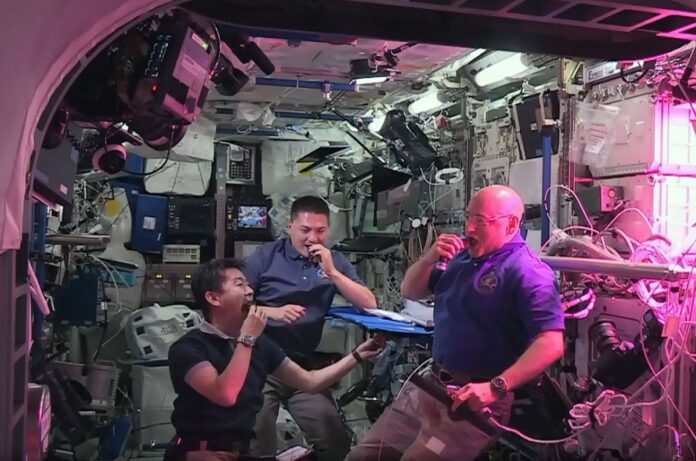An enhanced in-space diet augmented with fruits, vegetables and fish could help boost astronaut health and performance, a new study finds.
Spaceflight poses many risks to astronauts, including increased radiation exposure and the prolonged effects of microgravity. A nutritious diet and regular exercise can help astronauts overcome these health challenges, but space missions are severely weight-limited and “food has one of the highest mass requirements in spaceflight,” study lead author Grace Douglas, a food scientist at NASA’s Johnson Space Center in Houston, told Space.com.
The current diet for astronauts living on the International Space Station (ISS) is designed to supply nutritionally complete meals. However, “all food for space has to be processed for shelf stability at room temperature,” Douglas said — that is, able to survive on shelves for long times at room temperature without spoiling. “Most healthy fruits and vegetables are not consumed this way.”
Related: Food in space: What do astronauts eat?
In the new study, “we were able to develop a wider variety of spaceflight-compatible fruits and vegetables and provide them at a greater level in the food,” Douglas said. She and her team used these items to help build an enhanced diet with more servings and a greater variety of fruits and vegetables, as well as more fish, tomato-rich items and other rations rich in vital nutrients such as flavonoids and omega-3 fatty acids.
The researchers investigated the different effects the current ISS diet and the enhanced spaceflight diet had on six women and 10 men. These 16 people each ate either one diet or the other while they took part in 45-day missions in an Earth-based closed chamber designed to simulate confined spaceflight environments.
The scientists found that volunteers on the enhanced diet possessed lower levels of cholesterol and the stress hormone cortisol. They also performed better in terms of speed, accuracy and attention on a simple video game designed to test their mental performance. Moreover, their gut microbiome — the community of microbes that naturally lives in our digestive tracts — stayed more diverse and rich, a sign of good health, than in volunteers on the standard diet.
“We show benefits associated with diet in less than 45 days, which shows how critical diet is to health and performance,” Douglas said. “Astronauts have to perform at very high cognitive and physical levels, and this information is important as we plan resources for upcoming missions.”
The scientists are now testing this diet on missions in space, Douglas said.
“NASA is interested in how food mass can be cut, but first we have to understand how food is interacting with health and performance on these missions, and then how cuts may impact health and performance,” Douglas said. “More vehicle mass may be needed for food to support health and performance, especially as missions become longer and [go] further from Earth.”
Douglas and her colleagues detailed their findings (opens in new tab) online Dec. 15 in the journal Scientific Reports.
Follow us on Twitter @Spacedotcom (opens in new tab) and on Facebook (opens in new tab).

